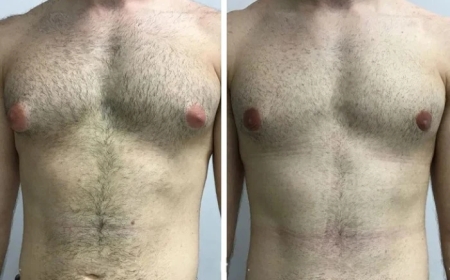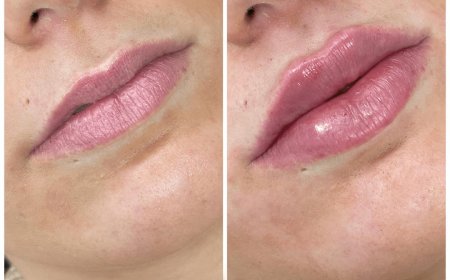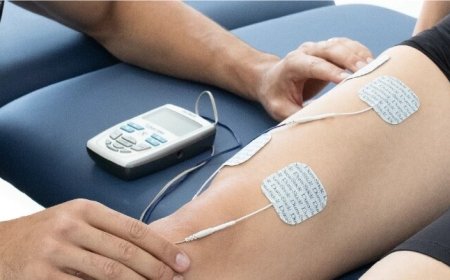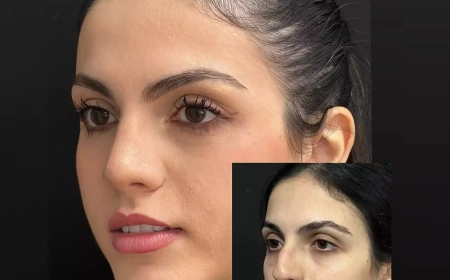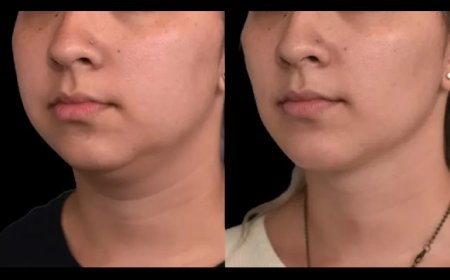How to Choose the Right Diabetes Doctor for Your Health Needs
In this guide, you’ll learn how to select the right diabetes specialist, what credentials to look for, and what questions to ask to ensure you’re getting top-tier care.

Managing diabetes is a lifelong commitment, and finding the right healthcare partner makes a world of difference in your health journey. While many general practitioners treat diabetes, working with a specialized diabetes doctor can provide the advanced care and personalized support necessary to manage the condition effectively and avoid complications.
Why Choosing the Right Diabetes Doctor Matters
Diabetes affects every organ system in your body and poor management can lead to:
-
Heart disease
-
Vision loss
-
Kidney failure
-
Nerve damage
A dedicated diabetes doctor helps you prevent these issues through proactive, specialized care. Selecting the right one ensures you:
-
Stay up to date with the latest treatments
-
Receive individualized care plans
-
Have ongoing support for nutrition, exercise, and lifestyle management
Types of Diabetes Doctors You May Encounter
Endocrinologist
An endocrinologist is a medical specialist focused on hormone-related disorders, including diabetes. Theyre typically the go-to choice for:
-
Type 1 diabetes
-
Complex Type 2 cases
-
Pregnant women with gestational diabetes
-
Complication management
Diabetologist
A diabetologist is a physician specializing exclusively in diabetes care. While less common in some areas, they offer highly focused expertise on blood sugar management and diabetes-related health issues.
Primary Care Physician with Diabetes Experience
Many primary care providers have extensive experience managing Type 2 diabetes, particularly in stable cases without complications. They can be a good starting point for new diagnoses or milder cases.
Factors to Consider When Choosing a Diabetes Doctor
Credentials and Experience
Look for a diabetes doctor who is:
-
Board-certified in endocrinology or internal medicine
-
Experienced in managing your type of diabetes
-
Familiar with the latest diabetes technology, such as continuous glucose monitors and insulin pumps
Location and Accessibility
Managing diabetes requires regular visits, so consider:
-
Proximity to your home or work
-
Office hours and appointment availability
-
Virtual consultation options
Range of Services
The right diabetes doctor should offer:
-
Routine A1C testing and lab work
-
Insulin therapy management
-
Continuous glucose monitoring (CGM) support
-
Lifestyle counseling or referrals to dietitians and diabetes educators
Communication Style
Youll be working closely with your diabetes doctor, so choose someone who:
-
Listens carefully
-
Explains medical information in understandable terms
-
Supports shared decision-making
Patient Reviews and Recommendations
Check online reviews and ask your primary care physician or friends with diabetes for recommendations on reliable diabetes doctors in your area.
Questions to Ask When Interviewing a New Diabetes Doctor
To make sure youve found the right fit, consider asking:
-
How many patients with my type of diabetes do you treat?
-
What is your approach to medication adjustments and new treatments?
-
Do you offer advanced technology options like CGMs and insulin pumps?
-
How do you handle emergency situations like severe hypoglycemia?
-
Can I contact your office between visits for questions or concerns?
Their answers will give you insight into their expertise and how they manage patient care.
Red Flags to Watch For
Be cautious if a diabetes doctor:
-
Rushes through appointments
-
Doesnt review your blood sugar logs or test results carefully
-
Offers outdated advice or avoids discussing new technology
-
Is difficult to reach for follow-up questions
-
Lacks a clear plan for managing potential complications
Your health depends on proactive, knowledgeable care dont settle for less.
How to Prepare for Your First Appointment
Maximize your visit by bringing:
-
A complete list of medications and supplements
-
Recent blood sugar logs and A1C results
-
Notes about symptoms or concerns
-
Questions youd like to ask
-
Information on your diet, exercise habits, and sleep routine
A good diabetes doctor will review all of this information to create a personalized care plan.
FAQs
What is the difference between an endocrinologist and a diabetologist?
An endocrinologist treats all hormone disorders, including diabetes. A diabetologist focuses exclusively on diabetes care.
Do I need a referral to see a diabetes doctor?
Many insurance plans require a referral from your primary care physician, though some specialists accept self-referred patients.
Can a primary care doctor manage my diabetes?
For mild or early Type 2 diabetes, yes. However, complex cases and Type 1 diabetes typically require a specialized diabetes doctor.
Should I choose a doctor who uses newer diabetes technology?
Yes working with a specialist familiar with CGMs, insulin pumps, and updated medications can lead to better blood sugar control and fewer complications.
How often should I see my diabetes doctor?
Most people see their diabetes doctor every 3 to 6 months, though you may need more frequent visits if your condition is unstable or complications arise.
Conclusion
Choosing the right diabetes doctor is one of the most important decisions youll make in your diabetes care journey. The right specialist provides expert, compassionate, and proactive care that keeps your blood sugar under control and your long-term health protected.
Dont rush the decision take time to research, ask questions, and find a provider who makes you feel supported and informed. Managing diabetes is a team effort, and with the right diabetes doctor by your side, you can live a healthy, confident, and active life.






